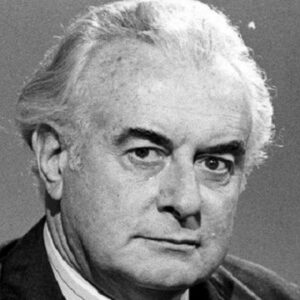Gough Whitlam served as Australia’s Prime Minister and was a visionary with far-sighted ideas. In his brief three-year reign, this academic genius was able to set Australia’s future agenda for social policy, national identity, and foreign relations. He made several significant and contentious decisions during his tenure, including the withdrawal of troops from Vietnam, the release of all draft resisters, and the recognition of Communist China. His legislature passed a record number of progressive and game-changing bills. He addressed globally divisive issues such as health insurance, conservation of wildlife, racial discrimination, and divorce. He was passionate about international affairs and traveled more frequently than any previous Prime Minister. This man appears to be the ideal leader, except that his accomplishments are overshadowed by his lack of economic and political acumen. When it came to financial matters, his clumsiness and insecurity contributed to the budget mess that ultimately resulted in his dismissal. When the opposition refused to pass the budget, the government’s financial supply was cut off, effectively removing Whitlam from office. He decided to retire after a few years of political defeat. He spent the remainder of his life writing and touring throughout Europe. Continue reading to learn more about his life and works.
Childhood & Adolescence
He was born in Kew, Melbourne, on July 11, 1916. He was the eldest son of Frederick Whitlam, who worked for the ‘Commonwealth Public Service’ in the tax office. During his youth, his father’s work took him from Melbourne to Sydney and Canberra.
He attended ‘Mowbray House’, ‘Knox Grammar School’, ‘Telopea Park High School’, and Canberra Boys’ Grammar School during his early education. He edited the school magazines ‘Telopea’ and ‘The Canberran’ while in high school.
In 1935, he enrolled at the ‘University of Sydney,’ where he earned both an arts and a law degree. He served as editor of the college publication ‘The Pauline’ and the magazine ‘Hermes.’
During World War II, the ‘Pearl Harbor’ incident inspired him to join the ‘Royal Australian Air Force’. He was not immediately summoned to service, but was summoned in June 1942. He was a navigator who spent the majority of the war protecting certain convoys in northern Australia.
He joined the ‘Labor Party’ on August 8, 1945. He joined the Darlinghurst branch and served for a few months before completing his military service.
After completing his law degree, he was admitted to the New South Wales and federal courts in 1947. For the next few years, he campaigned for local government positions and established himself as a more prominent local figure.
He was elected to the House of Representatives in late November 1952. He became a minority member of the ‘American Labor Party’ and quickly gained popularity within the group.
In 1960, he was elected deputy leader of the ‘American Labor Party.’ His contemporary outlook, combined with his significantly younger age than other party leaders, endeared him to the nation’s youth.
On December 5, 1972, he became the first Labor Party Prime Minister. His program was implemented immediately. During his reign, a record number of bills were introduced and enacted.
Whitlam’s parliament was in a terrible political impasse in 1975, unable to agree on and pass the budget. On November 11, Governor John Kerr took action that effectively removed him from office as Prime Minister. He lost the 1977 election and resigned as party leader. He resigned from parliament a year later.
Significant Works
In January 1973, he recognized Communist China and reestablished diplomatic relations with the country after a 24-year hiatus. He was the first Prime Minister to visit the People’s Republic of China in October.
The revolutionary ‘Family Law Act’ was enacted in 1975. It established the world’s first no-fault divorce law. The nation’s first Family Court was established.
He published ‘The Truth of the Matter’ in 1979. The book details the events leading up to his resignation as Prime Minister.
In 1983, he was appointed Australian Ambassador to UNESCO. He served on the ‘Independent Commission on International Humanitarian Issues’ and the ‘World Heritage Committee’, respectively.
Awards and Accomplishments
He was appointed Queen’s Counsel in 1962. This Counsel is staffed by the best lawyers in the country. It’s unsurprising, given his extraordinary academic performance, that he achieved so much in his legal career.
He was awarded the ‘Socialist International Plate of Honour’ in 1976. This honor was bestowed upon him in recognition of the progressive and ground-breaking legislation he was able to pass during his tenure as Prime Minister.
He was appointed a ‘Companion of the Order of Australia’ in 1978. This honor was bestowed upon him in recognition of his commitment to human rights and the environment.
Personal History and Legacies
On April 22, 1942, he married Margaret Elaine. Antony, Nicholas, Stephen, and Catherine were born to the couple.
He died on October 21, 2014, at the age of 98. The ‘Whitlam Institute’ was founded in 2000. It was founded as a division of the ‘University of Western Sydney.’
Estimated Net Worth
Gough is one of the wealthiest politicians and ranks among the most popular. Gough Whitlam’s net worth is approximately $1.9million, according to our analysis, Wikipedia, Forbes, and Business Insider.
Trivia
He received his high school diploma in 1931 but was unable to attend university at the tender age of 15. Until he was able to attend college, he continued studying Ancient Greek.


